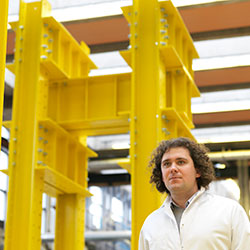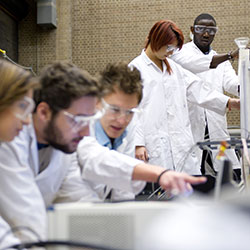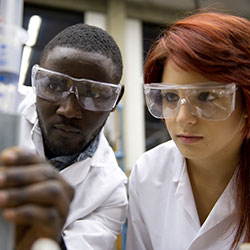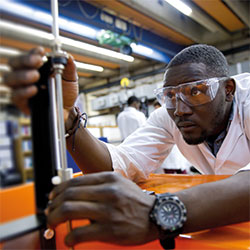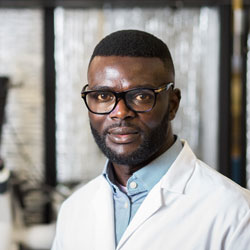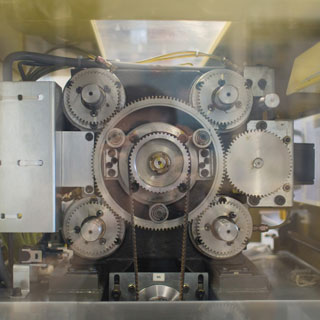
Mechanical & Energy Systems Engineering
Mechanical and Energy Systems Engineering
Mechanical Engineering offers a wide range of career opportunities in Manufacturing, Project Management, Research and Development, Design of Products and Systems and there exists a high and growing demand from industry for graduate Mechanical Engineers.
Mechanical Engineering is the broadest of all the engineering disciplines and an accredited degree in this exciting subject will place you right at the heart of modern industry, providing opportunities within, for example:
Transportation Engineering – e.g. aerospace, automotive, rail industries
Energy and power generation – e.g. conventional, nuclear and renewable energies
Manufacturing Engineering – e.g. materials, product design and production, processing
Medical and Pharmaceutical Engineering for Advanced Healthcare
You will combine design, mechanics, machines, materials science, thermo-fluids, and control with state of the art computational methods to analyse, innovate, design, implement and operate complex systems which are economic, reliable, efficient and sustainable.
Mechanical Engineering at Bradford has extensive research and teaching links with global industry and your lecturers are actively researching and solving problems in the fields of advanced materials science, automotive engineering, lubrication and wear, systems modelling and simulation, pharmaceutical engineering and design optimisation, with application and impact across all advanced manufacturing industry sectors.
Industry Ready
On graduation you will be ready for industry, with a strong grounding in engineering science and practical working knowledge covering all aspects of engineering education:
- Fundamental and advanced engineering science principles and methods that underpin mechanical engineering analysis;
- Applied knowledge, skills and competencies that feature a strong focus on methods for prototyping and analysis supporting efficient design and manufacturing;
- Integrated knowledge and skills, to support a transdisciplinary approach to efficient development of complex engineered systems; this includes communication and project management skills, as well as advanced model based systems analysis tools and techniques.
Each year of the course brings rich opportunities to put theory into practice through a range of individual and group “design, build, test” projects. For instance, Year 1 will see you take part in three projects using skills picked up on the course to manufacture, test and evaluate real mechanical devices.
We encourage and support all our students towards a seamless transfer to our MEng programme at the end of either the first or second year. The MEng programme comprises an extra fourth academic year that combines in-depth study with the integrative skills expected by industry, and provides the formal educational requirements for CEng registration.
Both the BEng and MEng courses can be taken with an additional placement year spent in industry. Opportunities for shorter term placement and engagement with student enterprise activities are also provided, and we encourage and support you to engage with such activities in order to develop your employability skills.
Professional Accreditation/Recognition
All programmes are accredited by the Institution of Mechanical Engineers. The BEng and MEng will meet, in part, the exemplifying academic benchmark requirements for registration as a Chartered Engineer and students will need to complete an approved format of further learning pursuant to the requirements of UK-SPEC.

